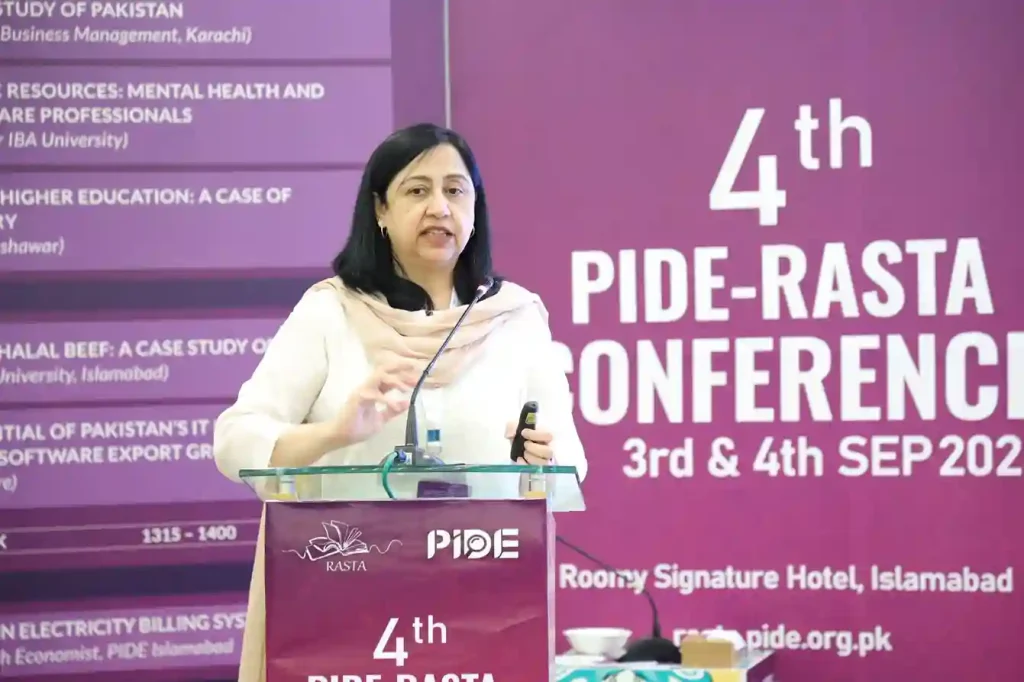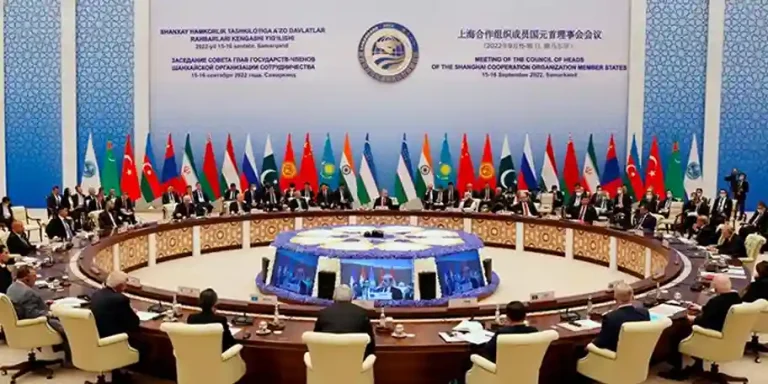Islamabad – By Our Correspondent
The RASTA Conference 2024 concluded today with an impactful second day of sessions, focusing on pressing issues in food, agriculture, and fiscal management in Pakistan. Hosted by the Pakistan Institute of Development Economics (PIDE), the conference brought together experts and policymakers to discuss the challenges and opportunities facing these critical sectors.
The day began with a session on “Food & Agriculture,” which featured significant discussions on the effects of government policies on agricultural production. Khair Muhammad Kakar from UET Khuzdar presented a comprehensive analysis of the impact of government policies on olive production in Pakistan. His research highlighted that while government initiatives have promoted olive cultivation, several challenges persist, such as limited technical knowledge among farmers, inadequate access to quality plant materials, and insufficient processing facilities. Kakar emphasized the need for consistent and targeted policy interventions to overcome these barriers and enhance olive production, particularly in regions like Balochistan, which show considerable potential.
Saranjam Muhammad Baig from Karakoram International University, Gilgit, provided an in-depth examination of the political economy of wheat subsidies and food security in Gilgit-Baltistan. His study revealed that despite the region receiving substantial wheat subsidies since the 1970s, food insecurity remains a significant issue, affecting over 50% of the population. Baig’s analysis identified inefficiencies in the subsidy distribution, with wealthier households benefiting disproportionately. He recommended a targeted subsidy approach, improved transparency in distribution, and support for local agriculture to address these inefficiencies and enhance food security in the region.
Irfan Ahmad Baig from MNS University of Agriculture, Multan, discussed the complexities of taxing rental income in agriculture. His presentation shed light on the skewed land distribution in Pakistan, where a small percentage of large landowners hold a significant portion of the land. Baig argued for comprehensive agrarian tax reform to address this disparity and suggested that taxing absentee landlords could be an effective way to generate revenue for public services and infrastructure development.
Following a tea break, the conference continued with the RASTA Showcase-II session, where Dr. Durre Nayab, Director of Research at PIDE Islamabad, presented the findings from the Pakistan Panel Household Survey (PPHS) 2024 Round. She said that PPHS 2024 marks a significant milestone in socio-economic research, offering comprehensive insights into the dynamic shifts within Pakistan’s households over the past decades. Initiated by the Pakistan Institute of Development Economics (PIDE) with financial backing from the World Bank in 2001, the survey has evolved through various rounds, with the 2024 iteration expanding its urban representation and covering 14 additional districts. For the first time, the survey includes digital data collection methods, ensuring a broader scope and more detailed data on education, employment, household assets, and new metrics such as financial literacy and care work employment. The PPHS 2024 also introduced new modules, focusing on CNIC/B-form registrations, eating-out expenditures, and subjective welfare, making it one of the most extensive panel surveys ever conducted in Pakistan.
This landmark survey is vital for policymakers, economists, and researchers, providing critical data to understand the socio-economic transitions in the country. With a robust sample of over 8,500 households, the PPHS 2024 allows for deeper analysis of urban and rural dynamics, offering a clearer picture of poverty, labor mobility, and household consumption patterns. The findings will help shape future policies aimed at addressing social inequality, employment trends, and household security, underscoring the importance of long-term data tracking in socio-economic development.
The afternoon session on “Fiscal Management” featured critical evaluations of governance structures and public sector management. Ayezza Sattar from the, Islamabad, presented a case study on the governance structure within the Ministry and its public sector entities. Her study highlighted significant flaws in the administrative framework, including a lack of cohesion among the various wings of the Ministry and issues related to political interference and intellectual integrity. Sattar called for amendments to the Rules of Business and a redistribution of work within the Ministry to address these issues and improve governance outcomes.
Asadullah Khan from Karakoram International University, Gilgit, focused on the governance of public sector projects in Gilgit-Baltistan, particularly in the power sector. His analysis revealed systemic issues in project management, including poor stakeholder management, ineffective governance mechanisms, and bureaucratic delays. Khan recommended the adoption of e-procurement, better planning, and robust risk management strategies to improve the performance of these projects.
Sobia Khurram from the University of the Punjab, Lahore, explored the barriers to the adoption of tax e-filing in Pakistan. Her research identified the complexity of the current e-filing system, lack of awareness, and general mistrust in the tax authority as key challenges. Khurram proposed several improvements, including simplifying the e-filing interface, enhancing taxpayer education through better tutorials, and promoting awareness of the support services available to taxpayers.
The session concluded with Muhammad Nadeem Sarwar from FAST National University, Islamabad, who provided a detailed analysis of tax expenditures in Pakistan. Sarwar’s study highlighted the growing burden of tax expenditures, particularly in customs and sales tax, and recommended the elimination of unnecessary exemptions and a more transparent tax system to improve revenue collection.
The conference concluded with closing remarks from Nadeem ul Haque, Chairman of RAC, RASTA, and Vice-Chancellor of PIDE. Haque emphasized the importance of research-driven policy-making and outlined the next steps for RASTA’s ongoing initiatives. He extended his gratitude to all participants for their valuable contributions to the conference’s success.
The RASTA Conference 2024 continues to serve as a vital platform for addressing Pakistan’s most pressing challenges, fostering informed dialogue, and shaping the future of policy-making in the country.





